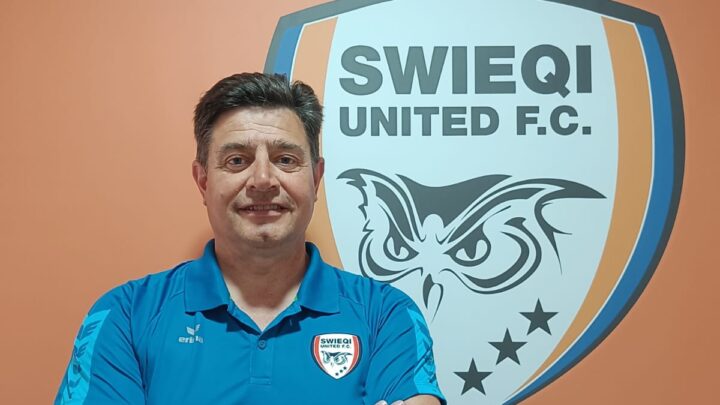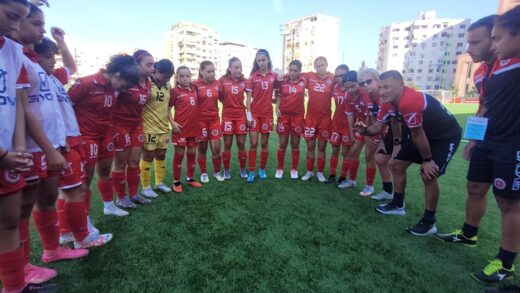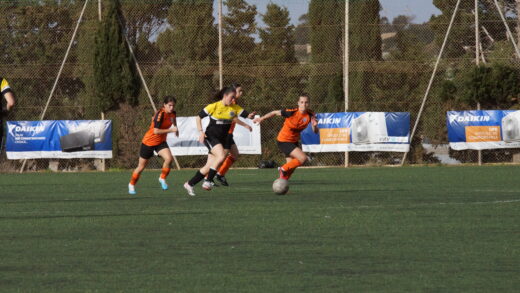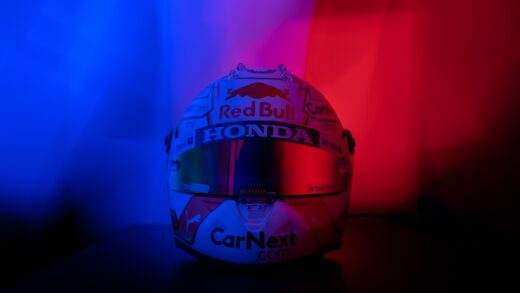Having seen the potential in Malta first-hand in a stint with Santa Lucia, Jasper de Muijnck has returned to the island, this time with Swieqi United as Director of Football Development.
Hailing from the Netherlands, Jasper de Muijnck had a first-hand in setting structures to develop a steady stream of talents, with stints as a club coach, as well as a coach educator with the Dutch Federation (KNVB) and an analyst with its national teams. An avid continuous improver, de Muijnck sought to implement change in Hungary and Bulgaria with success, before crossing paths with Malta.
In this engrossing interview, he offered insight into how the KNVB set its footballing pyramid to ensure that no talent is lost and what this means to the nation. He reflected on how this shaped his football worldview and the importance of adapting to culture in implementing changes in other nations.
Traversing his experiences with the Dutch football federation (KNVB), in Hungary and Bulgaria, we dove into why Swieqi United felt as a right fit on his return, his ambitions with the club and the importance of collective unity across the football community to lift football in Malta.
Defining Player Development & Key Roles
Eleanor Saliba (ES): How do you define the stages of player development?
Jasper de Muijnck (JdM): Coming from the Netherlands we have a system where we set big targets for every two years, which we break down into smaller parts. Technical skills are very important to start with; controlling the ball, accurate passing, dribbling with speed. These are the basic tools you need to have to be able to play football. So, until sixteen years old the focus is on this development and building a style of play. The opponent and winning comes when you are seventeen and older.
As a coach educator from grassroots to UEFA Pro, this is what I used to always tell the coaches, first teach the basics. If they learn to dribble, then you increase the speed until full speed. The same with passing, start stationary, until passing accurately at full speed. You move into the next step only when the player has learned the previous step. So, between five to ten years, this is what the players would be learning. Then you start focusing on how to attack, how to defend, position in a team, how you play together with different players, until finally you get to eleven players, at which point the player would be sixteen years. Following that, you start going into how to attack with three, four players. This is really the way we look at football.
ES: How do you keep an eight-year-old interested, despite there not being scoring and winning matches in the traditional sense?
JdM: We focus on making exercises that are rooted in football, that are challenging for them, but that they will enjoy. It’s important that they have fun, so you need to create an exercise that they can score in or feel that they can win, but that is challenging enough as well. Children are smart, it’s not always the case where you need to explain everything, they will figure it out. Maybe some will figure things out quicker than others.
So, you look at the level and find exercises that they can do and that they can fail in. As a coach that’s the most challenging part, to find the point where the best players will just manage while the some will just find some difficulty in. Then it is important to have positive coaching, never negative things on the pitch, not from coaches nor from parents, no one. If there are exercises where they can win, and they are surrounded by help when they need it, then they will still love the game.
ES: In the Netherlands, are there differences between developing a male and female footballer at a young age, or do the differences come later?
JdM: The separation comes later in the Netherlands. At a young age we don’t have women’s and male’s teams in the Netherlands, because they both require the same technical skills. Of course, then as they grow biologically there is a difference in physical abilities between men and women, at which point they will be separated. The very best girls can play up to U16 with the boys sometimes, but usually it is up to thirteen years.
In the Netherlands the professional women’s league was developed only recently. We have a very good infrastructure in amateur football, which was developed by the football federation. While it was amateur it was all a voluntary decision, but everyone realized that women’s football is a fast growing sport, it is now the fastest growing sport in the world. A decision was made that all the big male professional football teams must have a women’s team. We already had an amateur football pyramid for women’s teams, but above that we set up the professional league. We selected the best players from the amateur teams to go into the professional teams, so that they got the best facilities, had more time to train and trained better.
However, our amateur group is the foundation. Our scouting teams go there to find new players that professional teams can put into their clubs and develop from the U16 team onward. This makes a huge difference, because then we also had coaches specialise in women’s football. The principles in coaching are the same between men’s and women’s football, but there is a difference in the dynamic and the way of coaching a women’s team, so coaches must also be specialised. So, in the Netherlands the separation is made later, but then it is specialised in every way.
ES: What is the parents’ role in the development of a young footballer?
JdM: I think it is a little similar in every country. I have a son myself, and for sure every parent wants the best for their child. Every place that I’ve worked, the biggest battle is with the parents because they expect a lot. Sometimes, every parent will believe that their child is Messi or Miedema, but it’s not the case. Every child has their level. The important thing is to develop the child to their maximum level. Maybe the child is not the best player, but if you develop the love for football, maybe that child will become an administrator, a team manager or maybe the chairman of a football club. For that we need parents’ support.
As a parent you take your child to school to learn, and in the same way you take your child to training with a club for them to learn football. So, the education of football should be left to us, and we will give feedback and a picture of where the player is, what the next step will be. I think like this, parents will see that there is a structure to what we are doing, that will improve the player.
I’ve met with the parents of the players we have at Swieqi and this support is what I have asked. Questions are welcome, but it’s important for them to create a good environment of support. If you are shouting against the referee and against the players, it will influence things on the pitch. Especially at a young age, you have a lot of impact. As a coach you are a role model, but as a parent as well. If you put pressure and say negative things during a match, it will stay in the mind of a player and they will lose their enthusiasm for football. No child likes someone shouting negative things at them.
So, the environment is very important and the parents’ role is to support. If the child is disappointed because they lost a game, in the drive home, do not spend the time telling them what the mistakes were, the role is to support. You say, “You did well, you tried your best. This team was strong, but train hard because maybe next time you can beat them.”
Challenges In Player Development Across Countries
ES: What prompted the changes to move not just clubs but different countries, and what were the elements that stood out in trying to implement similar structures across different nations?
JdM: I like to challenge myself and am always looking to improve. I grew in the Netherlands in coaching and in football, but as I travelled for coaching education I was fascinated by the different cultures and wanted to challenge myself to see if I can bring the Dutch way to success as a coach abroad. I went to Hungary and experienced the challenge of this for the first time as a coach. Over time I grew an interest in Sports Management because I felt I needed to improve this aspect. So, I went back to university to study this during the day and in the evening, I was coaching an amateur team.
I was then approached to coach a team that has fifty different nationalities, so players from the Netherlands, Iraq, Iran, Colombia, Turkmenistan. To bring them to work together, considering very different cultures was another very interesting challenge for me. Then I went to Bulgaria, and it was another challenge, before I came to Malta with Santa Lucia and now Swieqi United. So, I’m always looking to challenge myself.
The key thing that I have found is that wherever you go, you always need to find the people who have the desire to connect and to grow as well. Then you can do something. You cannot do things on your own and you must understand the culture.
ES: From these experiences in different nations, what are the common pitfalls that you’ve seen clubs and even whole federations fall into when trying to tackle player development?
JdM: I think the biggest mistake is that no one thinks long-term. There is a tendency of changing direction too much with every year. I’ve seen this happen in all the countries I’ve worked in, because the tendency is that everyone wants success in the short term. Player development is long-term. So, if you have a structure for this, then you can measure in years. So, players, parents, clubs, everyone needs to be patient. This will be my focus with Swieqi, to develop the way to measure if a player is really improving.
ES: There is a drop-off in participation in adolescence which results in young talent getting lost. What are the common causes and, in your experience, how does one retain them in the game?
JdM: Extreme pressure and negativity will (make them stop). There are high dropout rates at twelve-thirteen years old, which are a combination of things. As puberty hits there is a normal tendency for a person to start to form their own opinions more and they will rebel against authority. Parents normally get this backlash for normal things, but if they have been negative about football then it will also translate to that. If the child has put all this effort and the only thing it brings is negative criticism from their parents and coaches, then they will lose the love for it and stop.
I think the important thing is that from a young age you develop a mindset of getting better everyday. At a certain point, the aim of the game becomes to win, but one must connect the age to the aim. At adolescence, if there is too much emphasis on winning, and you’re not winning, then the love for the game goes away. It is much easier for the player to stay at home and play video games. Also, at adolescence one must be prepared for some rebellious acts, it’s normal. The important thing is for the coach to know how to approach the player about it and speak to them. The coaches must keep in mind that their session has to be age-related and create an environment that is positive, but pushes the player to improve.
The Desire To Unleash Malta’s Potential
ES: You had a first stint in Malta starting in 2022, where you were working with Santa Lucia. How did this come about?
JdM: I was in Malta with a Bulgarian U17 team that I was coaching because I was invited by a Bulgarian coach, Nikolay Filipov, who was working in Malta. I brought the U17 team I was coaching to Malta for a three-match camp. I knew I had five players who I thought could make the first team, so I thought it’s important to teach them something. So, the trip was new for them, they had to take care of themselves here and then perform against a team that they do not know. We won big against the Maltese teams, but in every Maltese team we played against, I saw talent that could be developed.
Then Covid-19 happened and an English manager I know introduced me to the Santa Lucia President at the time. I thought it was interesting because I knew there’s talent and the plan was to bring together a talented group of players and develop them. However, unfortunately infrastructure permissions did not come out and then money issues developed, things did not pan out and I had to stop my project and leave.
ES: Why did you decide to return to Malta and why Swieqi United?
JdM: It felt unfinished with Santa Lucia, but I had to go. However, my passion in football is to develop players and as I said I believe that there is talent in Malta that can be developed. As for Swieqi, I had contact with Timmy (Gingell, CEO of Swieqi United) and the people I spoke with outside of Swieqi were very positive. Everyone I spoke with outside of Swieqi said that it is a young club with a different approach to other clubs in Malta.
I was really pleased when I spoke with Timmy and it seemed to me that as a club they have built slowly over fifteen years, with a structured approach and with a desire to develop players in a sustainable way. It is a club that also has formed good partnerships with clubs abroad and that is following a program in these developments as well.
There was also not a lot of change in the Director of Football Development, which is also good. Billy Mock built the system based on the Spanish and a Dutch way and formed a curriculum. He did a very good job on this. It gives me a good foundation that I can build on, because it is already aligned and then I can bring my own experience to improve on it. So, all of this gives me a positive picture of how they want to develop the whole club, which is in a different way to others.
I was questioned on why I would want to go to a club whose men’s team is the second tier, but the bigger the challenge, the more I want to be a part of it. I also know that there is a lot of potential in the women’s teams, with good talents, some players in the national team and an exciting coaching setup. So, I see a lot of potential to improve. I also have the advantage of knowing a little bit about Maltese culture already and you must always find ways to adapt a bit as well. So, I’m looking forward.
ES: Can you give a picture of how grassroots is structured in the Netherlands and perhaps the differences to Malta?
JdM: There is a very big difference there when you compare to Malta, and a bit of difference when you compare to Hungary and Bulgaria. In the Netherlands, we decided thirty years ago that we are a small country, we have 17 million people. It may be a lot compared to Malta, but we are small compared to other nations. However, we decided that we cannot lose any talent. So, we developed a project and a structure to find the talents and to make sure that all of them can be in the best possible structure for them to grow.
We developed regions and for every age group we selected the best children and made four teams and they played against each other. From them we chose the best and they played against the players of another four regions, and we selected the best team again, and kept on building the pyramid like this. In the end, we had six or seven regions who play in a tournament in the national training centre where the scouts from the best clubs are invited to choose players for their academies. Any player who is already signed to a club academy does not participate in these tournaments, because they are already on their way.
However, this structure gives the path and a platform for those who maybe were not selected at seven or eight years old, but with this support they can be selected by professional academies and develop with the best education even if they are ten or eleven. Then, they compete in leagues depending on the level. If the federation sees that a particular team is losing by big scorelines for six months, they move the team to a lower level so that they can compete and grow.
In the Netherlands, the big academies will end up with multiple teams of different level players for a particular age group. However, there is an ecosystem in this, and there is a big difference to what is done in Malta, where a team has their own team for the youth brackets and they will compete with others at a young age.
ES: In your view, does the small size of Malta limit the development of young players?
JdM: Infrastructure is the biggest issue. It is very hard to find a full-size pitch to train on and Malta is a small island, so of course space is limited to build full size grounds. If you want to develop players, they need to have a space to train in so that infrastructure is very important.
I’m a big fan of Johan Cruyff, I spoke many times with him because I liked his football philosophy. However, what he did next to football was that he built the Johan Cruyff Foundation, which made playgrounds for children to play. Every year, they choose a ‘talent of the year’ to give them an award, but also that player will choose the place where the Foundation builds a ‘Cruyff Court’ as they call it. It’s a small football pitch, with lines on it to play some other sport and also basketball nets. Frenkie de Jong won it and he chose his hometown, Arko, to build this. So, this supports the community. Some places will get it for free because of the award, but the Foundation also speaks with the government to also build these infrastructures in other places.
Things like this are very important, because I ask, where can a child play in the street in Malta? I lived in Marsascala for eight months and worked in Birkirkara, I never saw football on the streets. Then, the pitches to train on at club level are also small, so we need to build more full-size pitches. There needs to be a facility, it does not need to be only for clubs, during the day school trips can be organized as well. I think this is missing in Malta. There’s potential in children, there’s good coaches coming up, but infrastructure needs an upgrade.
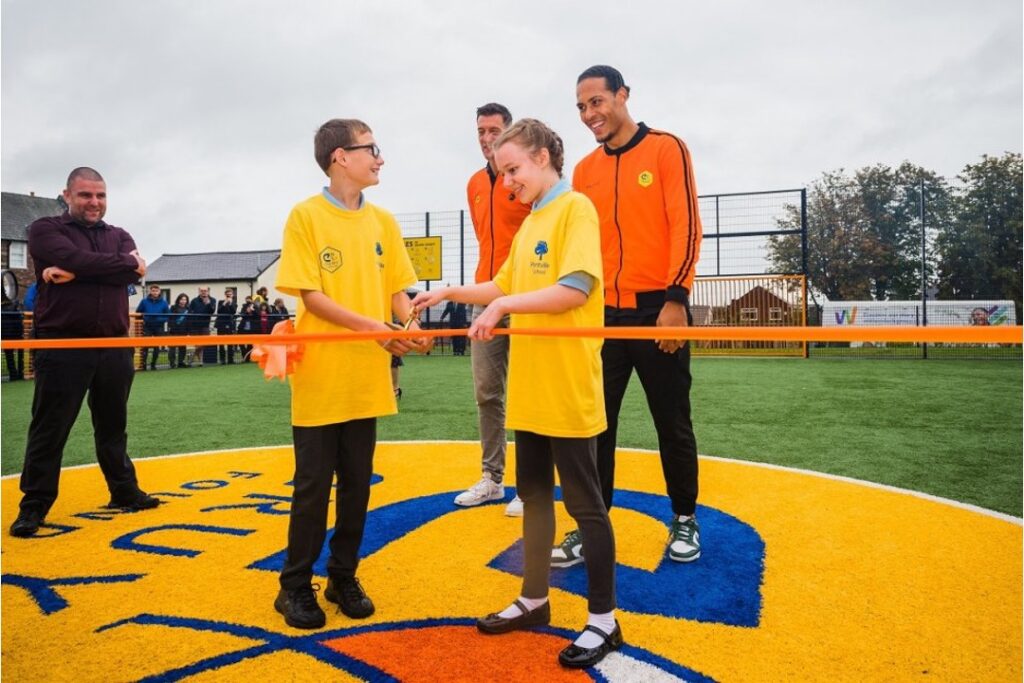
ES: You will be employed as Director of Football Development with Swieqi United. What does this entail and who are the key people that you involve in this?
JdM: I think you must understand what the culture of Malta is and find what makes players tick. Of course I have a strong background in the Dutch way, but you cannot implement Dutch philosophy exactly in Malta, because the culture and mentality are not the same. So, you need to adapt it to develop the style of football that suits Malta. I do not want to prescribe a model, I want to speak with the coaches and discuss the problems that they find and help them to find exercises that can improve the players against those problems.
Every team in our academy will have several coaches who will bring their best skill. We have very good coaches from different countries like Brazil, Spain, and more, but each team has to also have a Maltese coach. In this way, the children have the best combination of skilled coaches, but ones who also understand the Maltese culture.
ES: Considering that development is a long-term thing, what are key measurements that you make to understand if a player is improving?
JdM: As an academy you must always make a choice, whether the central focus is the development of the players (individually) or of the team. You will have a ratio of this, but there is always a decision that needs to be made to define the priority. From then on there are many things that you need to measure to assess the development. There are competences that are associated with the ages. Every two years there are new competences that need to be worked on.
To measure football (technical and tactical), you need to analyse improvement in training and evaluate games against the principles. There are different things that you can measure to assess this. For example, if you want to know if you are improving the attacks, measurement of the number of forward passes is one metric. So, this is always related to evaluation of the team and the player. This is where I will sit with the coaches and review the plans made with the players. We analyse the results and based on the trends, support the coaches to adapt the programs to target the areas accordingly. As we work together all of us will improve over time.
The same is for physical attributes, these can be measured through tests. Every group, from five years old to our seniors will have a physical coach. The physical part is separate to the football. I believe in hiring specialists, so they will have the targets and they can develop the program needed to reach those targets. Like for football, we test players in the beginning and at the end, based on this we can understand the progress, assess this and if we need to, edit the program.
Besides technical, tactical and physical, you also need to measure mentality. You get feedback from the club on this, but you can also do questionnaires with players to find out.
So, we evaluate the progress in these areas and if the player has reached these targets we move them to the next stage. This is the reason why Matthijs de Ligt was in the Netherlands national team and captain of Ajax at seventeen years old. The same for Jorrel Hato. At U11 he had reached all the competences, so he was moved to U12. He reached the competences after half-a-year so was moved up to U13 at still eleven years old. He was also very good, including mentally, despite being only eleven. They kept assessing things and in fact he was playing U19 as a fifteen-year-old. He played with the second team and even trained with the senior team. He still played with U17 and U19, sometimes with the senior team. The important thing was that the coaches always spoke with him and explained why he is there. He made his senior debut at sixteen. There are always drops in form, especially with young players. This is where the communication from the coaches is important.
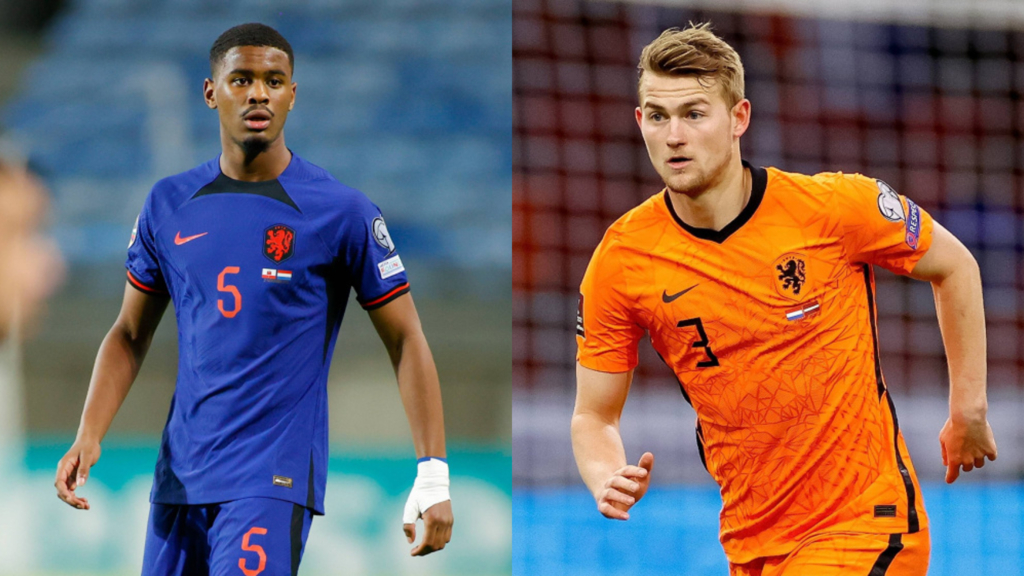
ES: What goals do you set for yourself with Swieqi United, and at which point would you assess your achievements?
JdM: As Director of Development my objective is to improve the club, the coaches and the players in the short-term. So, I will spend time with the coaches to guide them to develop plans for their players. It will be the same with the men and the women’s teams. In doing so you need to speak with the players and understand what their ambitions are. However, the focus is that I enable coaches to develop players, support them along the way, assess the development of players and help to adapt the programs depending on that development. As we work on this together, as a club we will grow, all of us, including myself.
Long-term, I define success as having young players coming to the club, improving and with a clearly defined playing style being developed. In doing so, it means that our players have improved and the coaches also. If we win the league it’s fantastic, but the first priority is to improve and that we get the reputation of an academy that young players want to come to and parents want to send their sons and daughters to, knowing that they will improve.
Those interested in joining the Swieqi United academy may apply on the club website or contact the club via their official social media channels on Facebook, Instagram & LinkedIn.
Lead Image: Swieqi United FC
Stay up to date by following The Sporting Fan on social media: Instagram ~ Facebook ~ X
